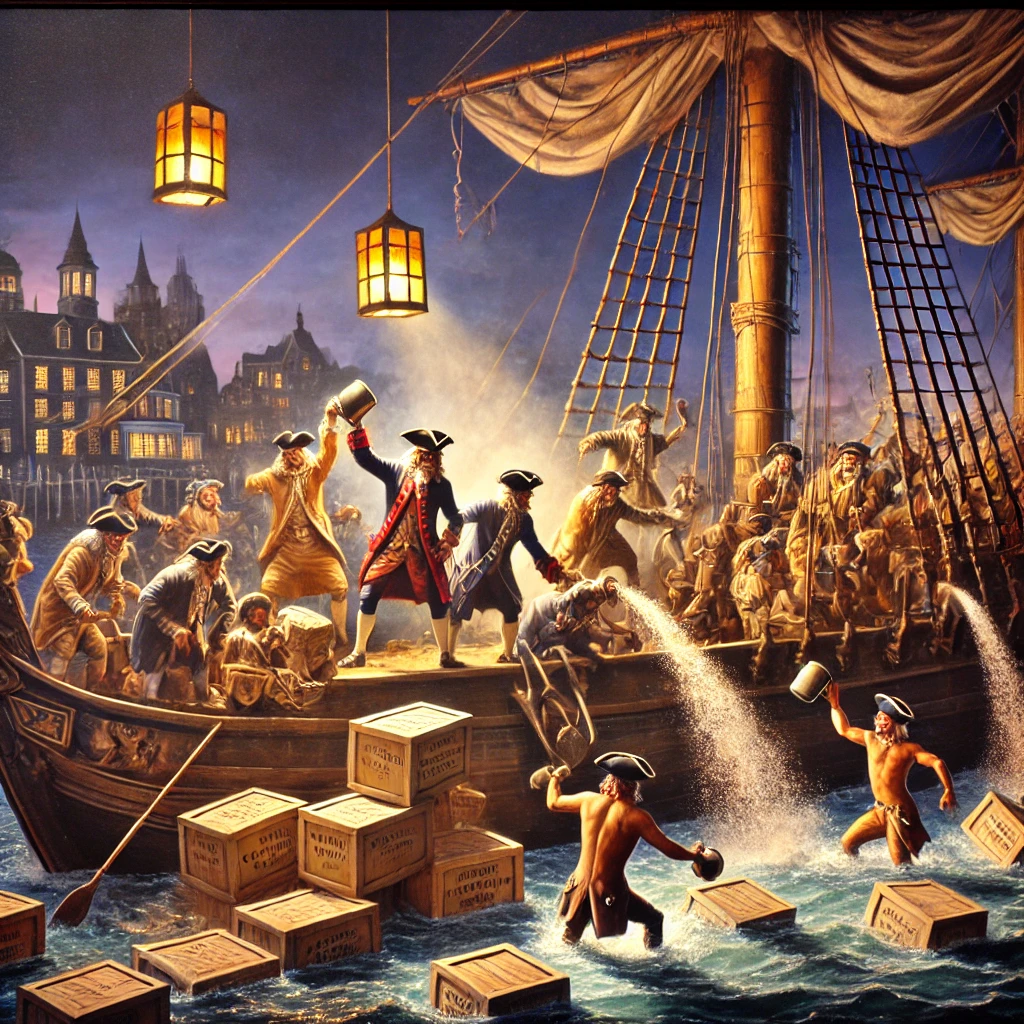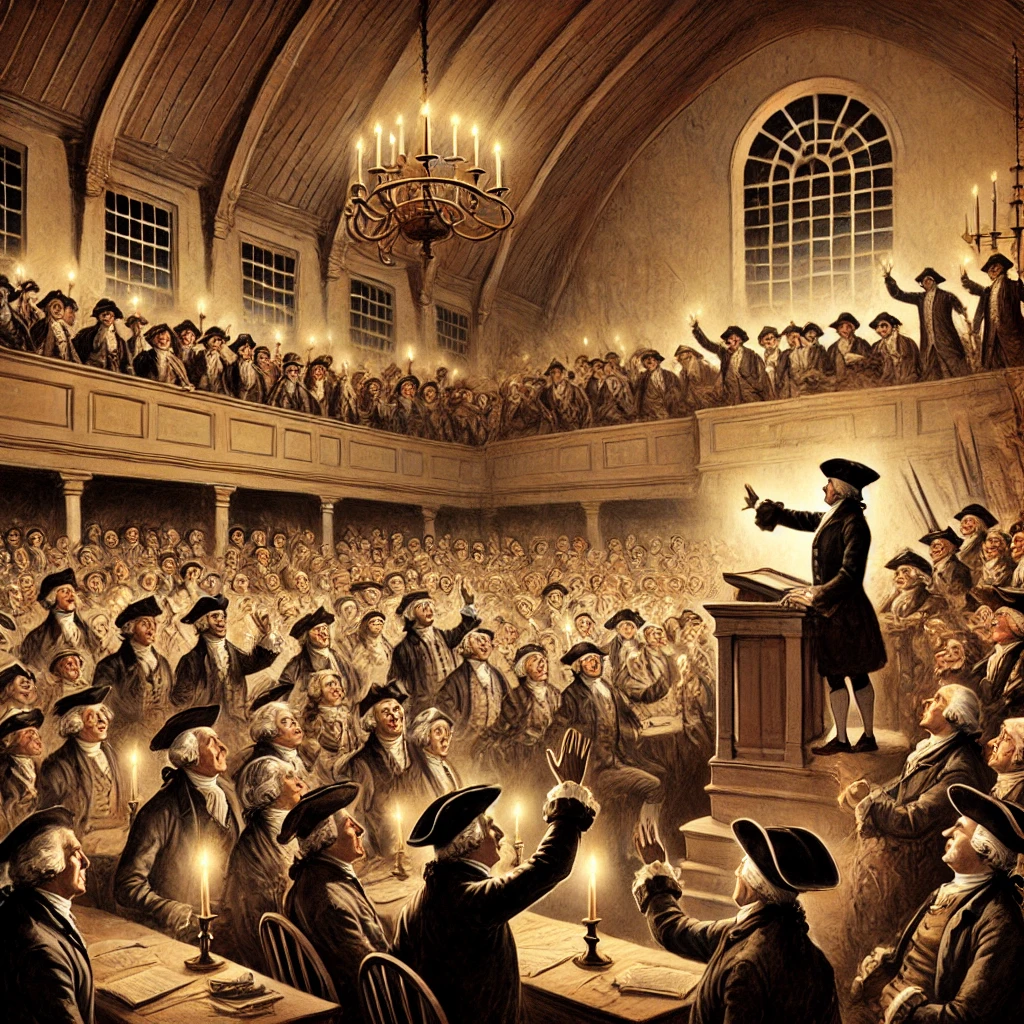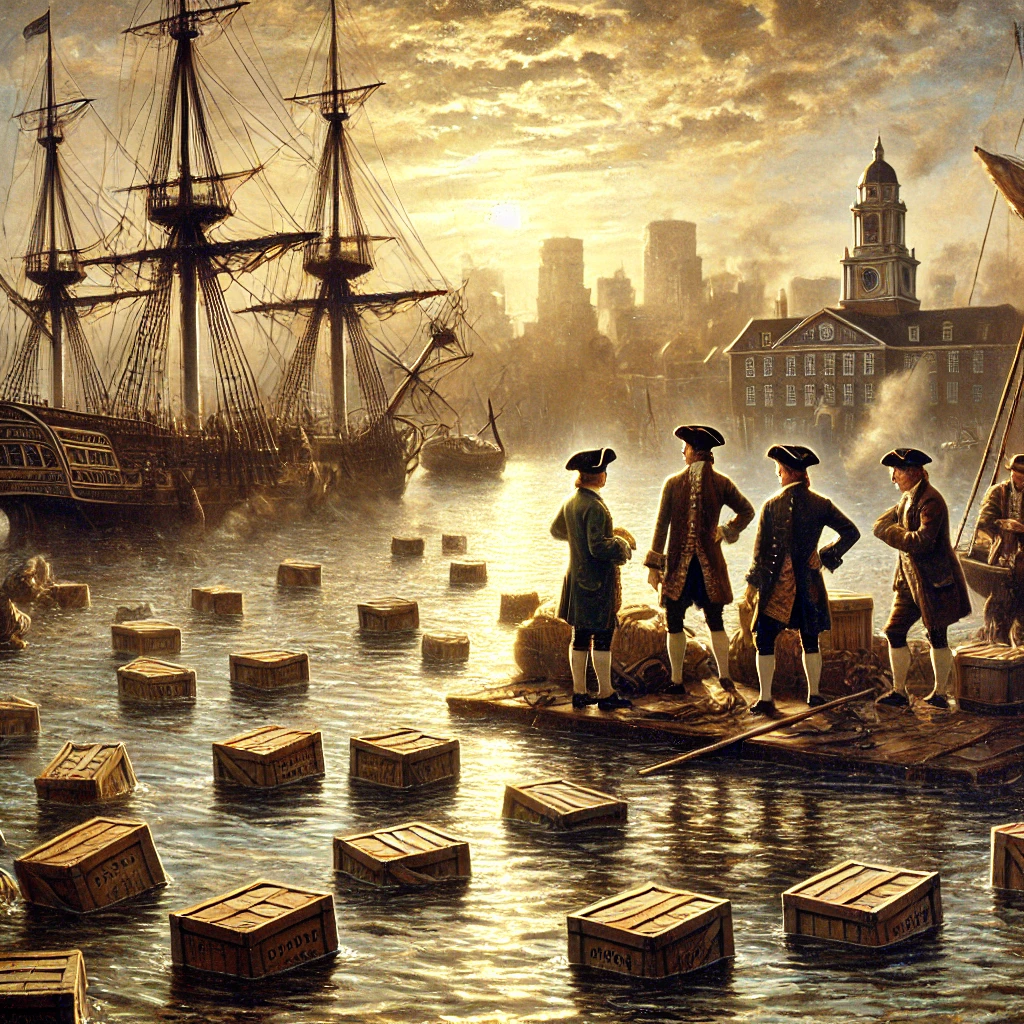A revolutionary act unfolded on December 16th, 1773, when American colonists, protesting against British taxation, boarded ships in Boston Harbor and dumped chests of tea into the water in what became known as the Boston Tea Party. This bold act of defiance marked a turning point in the American colonies’ struggle for independence and sent shockwaves across the Atlantic, challenging British authority and galvanizing a movement that would lead to the birth of a new nation.

The Roots of Rebellion
The Boston Tea Party was the culmination of years of growing tension between the American colonies and Great Britain. Following the costly French and Indian War, Britain sought to offset its debts by imposing taxes on its colonies, such as the Stamp Act and the Townshend Acts. Among these was the Tea Act of 1773, which granted the British East India Company a monopoly on tea sales and allowed it to undercut local merchants. While the Act lowered the price of tea, it underscored the principle of “taxation without representation,” fueling colonial resentment.
Protest against the Tea Act was widespread, with colonists viewing it as another example of British overreach. The Sons of Liberty, a group of activists led by figures like Samuel Adams and John Hancock, orchestrated resistance in Boston. Their goal was to send a clear message to Britain: the colonies would not accept taxation imposed without their consent.
A Night of Defiance
On the evening of December 16th, approximately 60 members of the Sons of Liberty, some disguised as Mohawk warriors to symbolize unity and defiance, boarded three ships docked in Boston Harbor—the Dartmouth, the Eleanor, and the Beaver. Over the course of three hours, they methodically broke open 342 chests of tea and dumped them into the frigid waters. The value of the destroyed tea was substantial, amounting to roughly £10,000 at the time (equivalent to millions today).

Witnessed by a crowd of onlookers, the Boston Tea Party was a carefully planned and executed protest. Despite its scale, the demonstrators avoided violence and ensured no property beyond the tea was damaged. This act of rebellion captured the attention of the colonies and the British Crown alike, becoming a symbol of resistance and unity among the colonists.
The Ripple Effect
The immediate reaction to the Boston Tea Party was swift and severe. In retaliation, the British government enacted the Coercive Acts, also known as the Intolerable Acts, in 1774. These measures closed Boston Harbor, revoked the Massachusetts Charter, and allowed British officials accused of crimes to be tried in England, among other punitive steps. The Coercive Acts, intended to quell rebellion, instead galvanized colonial unity.
The Boston Tea Party and its aftermath spurred the formation of the First Continental Congress, where representatives from the colonies convened to discuss their grievances and chart a path forward. This unprecedented unity laid the groundwork for the Declaration of Independence in 1776 and the eventual establishment of the United States.
Lasting Impact

The Boston Tea Party remains a defining moment in American history, symbolizing the power of collective action and the fight for self-governance. Its legacy can be seen in the enduring importance placed on civic engagement and the principle that governments derive their legitimacy from the consent of the governed.
Today, the event is commemorated as a pivotal step toward independence and is celebrated in popular culture, education, and even reenactments at Boston’s historic harbor. It serves as a reminder of the courage and determination required to challenge injustice and stand for principles that shape a nation’s identity.
